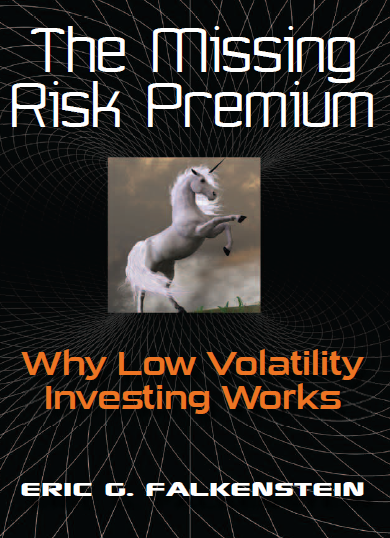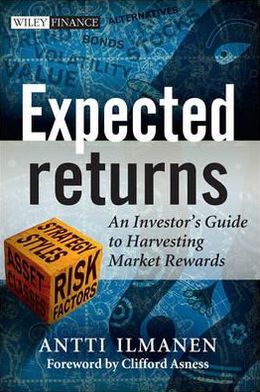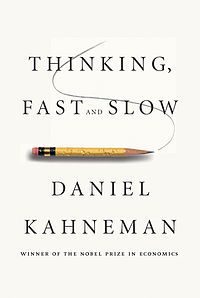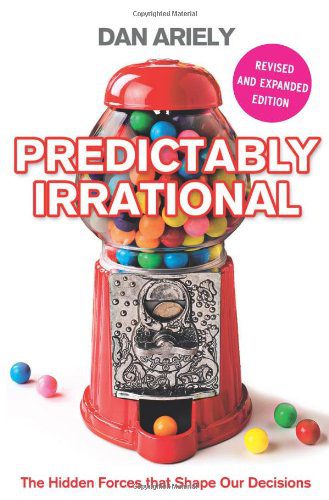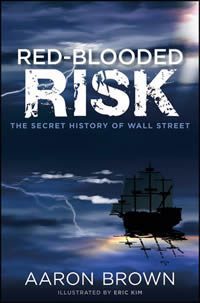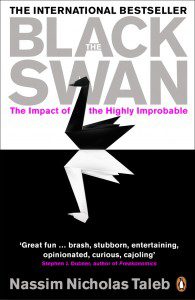It’s never a great idea to invest in the markets – even through managed investment vehicles – without taking the time to learn plenty about them, and this is especially true when you are investing the type of amounts that are required to join the hedge fund club. Here, we have brought together seven more of the best, most illuminating, and most informative books about the markets, investing, and the fund management industry.
The Missing Risk Premium: Why Low Volatility Investing Works
Erik Falkenstein (CreateSpace)
Accepted market wisdom has it that greater risk equals greater reward, and it is this assertion that Falkenstein seeks to debunk in this contrarian view of the asset pricing model. The author sees risk as the deviation from the consensus, and that when lots of people are buying highly volatile assets, the aggregate returns from these assets will be negative. Also, because people have such a wide variety of reasons for buying risky assets, they are likely to have returns that are lower than average. While this hypothesis could be deemed heretical in some circles, it does seem to be more consistent with the available data than the mainstream view. Although this book does get quite technical, and a good working knowledge of financial terminology is necessary to fully understand everything here, it is not strictly needed to glean some valuable contrarian insights.
Expected Returns: An Investors Guide to Harvesting Market Rewards
Antti Ilmanen (Wiley)
Written by a well-renowned financial industry expert, this book offers a detailed how-to guide for investors looking to be able to forecast their returns from a range of investments with a fair degree of accuracy. Topics covered include expected returns of major asset classes, investment strategies, and the effects of underlying risk factors such as growth, inflation, liquidity, and different risk perspectives, making extensive use of empirical evidence, surveys, and practical insights to back up the points raised.
Thinking, Fast and Slow
by Daniel Kahneman (Penguin)
While this book is not necessarily finance-specific, its insights into how we make decisions are essential reading for anyone with an interest in finance, trading, or investment. Basically, it outlines the two ways in which we make choices – via fast, intuitive thinking and slow, rational thinking – and how prejudice and error can lead us to make bad decisions even when we think we are being logical. As an insight into the psychology of trading, as well as other broader themes, this book is unsurpassed.
Predictably Irrational: Hidden Forces That Shape Our Decisions
by Dan Ariely (HarperCollins)
Another book on the topic of the psychology of decision-making, this book offers up a witty, original, and absorbing look at the forces that drive us all to make illogical decisions. Written by behavioural economist Dan Ariely, Predictably Irrational combines a series of unusual and insightful experiments with everyday experiences to explain the hidden and not-so-hidden reasons behind our decision-making processes. By pointing out these patterns, the author aims to show us how to make better decisions in business and also in our personal lives.
Ray Dalio (Bridgewater Associates)
As far as hedge fund personalities go, you don’t get many bigger than that of economic guru Ray Dalio, who we profiled recently on Hedgethink in an article entitled The Economic World According to Ray Dalio. As the boss of the world’s biggest hedge fund – Bridgewater Associates – and one of the few big-league investors to have seen the credit crunch coming and made a fortune out of it, he is now one of the most influential economic voices in the world. This 111-page self-published management bible is required reading for each and every one of his employees, and is a must-read for investors and fund managers alike.
Red-Blooded Risk: The Secret History of Wall Street
Aaron Brown (Wiley)
Although the title hints at something a little more broad-ranging, Red Blooded Risk focuses on a small group of quantitative traders on Wall Street who invented a form of risk management for risk takers that revolutionized the industry and gave rise to the global market for derivatives that we have today. This book takes an analytical look at this approach, offering valuable advice for those who need better guidance in terms of taking calculated risks. It makes a strong argument for better risk management rather than risk-minimization as an investment approach – i.e. being prepared to accept losses rather than going out of your way to avoid them at all costs. Although it’s quite in-depth, the book does stop short of providing equations, making it accessible to a readership that might not have the mathematical expertise of a quant trader, but who would like to gain a solid understanding of it.
The Black Swan: The Impact of the Highly Improbable
Nassim Nicholas Taleb (Penguin)
It’s an oft-spoken truth that the markets, and life in general, is unpredictable, but yet many of us are often unwilling to accept this fact. This best-selling book is a meditation on the importance of knowing and being able to specify exactly what you don’t know, rather than focusing on what you do. As a philosophical look at the reasons why people are so often caught out by seemingly improbable events such as the credit crunch – a classic ‘Black Swan’ event if there ever was one – it’s peerless, and provides a much more broad-ranging view of how things really work in the markets.
Other articles in this series:
Top Hedge Fund Books and e-Books – Part 1
I am a writer based in London, specialising in finance, trading, investment, and forex. Aside from the articles and content I write for IntelligentHQ, I also write for euroinvestor.com, and I have also written educational trading and investment guides for various websites including tradingquarter.com. Before specialising in finance, I worked as a writer for various digital marketing firms, specialising in online SEO-friendly content. I grew up in Aberdeen, Scotland, and I have an MA in English Literature from the University of Glasgow and I am a lead musician in a band. You can find me on twitter @pmilne100.

























